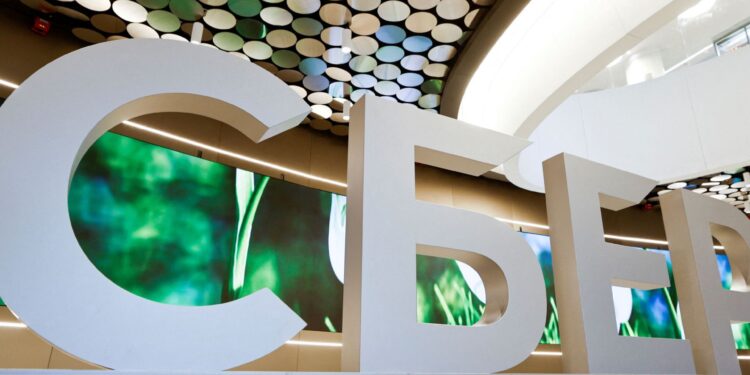Al Jazeera Net correspondents
Moscow The pilot project for Islamic banking services, which the Central Bank of Russia announced on September 1, 2023, is continuing in Russia in the Muslim republics of Chechnya, Dagestan, Bashkortostan, and Tatarstan, which belong to the Russian Federation.
Recently, Sberbank (the largest international bank in Russia and Eastern Europe) and other Russian banks announced the opening of “Islamic branches” to activate Islamic banking services in Chechnya and Tatarstan, with expectations that more banks will later join the experiment that Russian President Vladimir Putin had signed a law stipulating that it would be conducted in The period from September 1, 2023 to September 1, 2025.
new experience
These services contain – according to the law – a number of prohibitions and restrictions. For example, prohibition of the payment of interest (usury) and interest transactions derived from it, prohibition of transactions with conditions of uncertainty (gharar), prohibition of financing strictly defined sectors of the economy: gambling, production of pork, tobacco and alcoholic beverages, trade in arms and ammunition, addition. To the conditions for sharing the risks of profit and loss between the financier and the client in transactions, and others.
In this context, Sberbank announced last February that its partner financing center, in cooperation with experts from Speer Invest Middle East, periodically examines the shares of Russian companies traded on the Moscow and St. Petersburg stock exchanges to ensure their compliance with Islamic finance standards.
According to preliminary estimates by Sberbank, the volume of Islamic financing in Russia in the first 3 years may reach $25 million. Other experts believe that in light of the comprehensive participation of the state, financial and credit organizations and large companies, the forecast for this period may be more optimistic than $60 million.
Scope of participants
About 7 million people in Russia are likely to become consumers of Islamic banking services, said Chairman of the State Duma Committee on the Financial Market Anatoly Aksakov during the “Russia – Islamic World” forum held in Kazan last month.
According to him, the main consumer of Islamic finance market products will be about 20% of Muslims, adding that data for the year 2023 indicate that about 25 million people living in Russia are committed to the Islamic religion, of whom about 5-7 million people strictly follow the laws, as he put it.
In line with the horizontal expansion of the experiment, last May, the first “Halal Card” was launched in Russia, to provide “Halal Cash Back.”
Economist Victor Lashon explains this point by saying that the main difference between halal cashback and classic cashback is that the money is not received from bank profits, but from affiliated programs and projects, which does not contradict Islamic law.
He added in a comment to Al Jazeera Net that there are hundreds of companies in Russia that offer cash back of up to 30% of the check, such as supermarkets, restaurants, clothing stores, hotels, airlines, etc.
Regarding the impact of Islamic banking on the Russian economy, Lashon says that developing partnership financing in Russia will enable attracting capital, especially from Middle Eastern and Asian countries, and lead to expanding trade and investment relations geographically.
According to his estimates, the development of partnership financing in Russia is supposed to stimulate the flow of investments from Islamic countries, as the Russian economy in this case can attract a portion of up to $14 billion in Islamic investments, which can compensate for the gap left by the absence of Western financing as a result of Penalties.
In addition to foreign investment, the development of new financial institutions helps attract more money from the public. People who keep their savings in cash for religious reasons will be able to become full participants in the market, stimulating the Russian economy.
Possible for expansion
As for the researcher in international economics, Salavat Yusupov, he expects that within the trial period, which will end in September of next year, the results will be analyzed and decisions will be taken to expand the legal rules around Islamic finance to other regions of Russia, and perhaps by that time a comprehensive law will be created and adopted. Concerning Islamic finance (partnership) in the country.
But he points out that there are no unified standards for Islamic banking services in the market yet, which is an extremely important issue so that there are no gaps for those who want to use this channel, as he described it.
He continues that the size of the global Islamic finance market amounts to about $4 trillion, or 6.5% of the entire banking sector, meaning that it is a huge and enormous market, and these numbers are supposed to constitute an additional incentive for banks and Muslim clients in Russia to participate in this experiment.
But, on the other hand, he points out that this process must take place in stages, given the low level of awareness and knowledge among consumers and financial institutions themselves about this new system, which requires additional years to make it widely understood and implemented, which also requires, among other things, Other – to root the idea that these banking activities reflect the religious conscience and moral values of Muslims, something to achieve which is necessary for a more robust involvement of Sharia experts from within Russia and even Sharia consultants from abroad.



